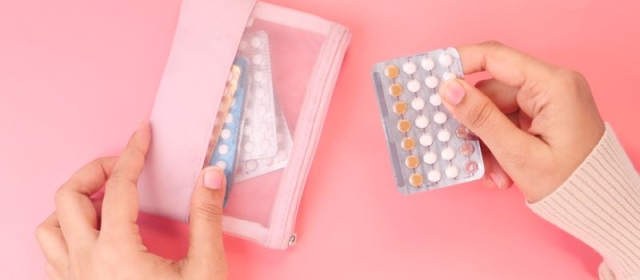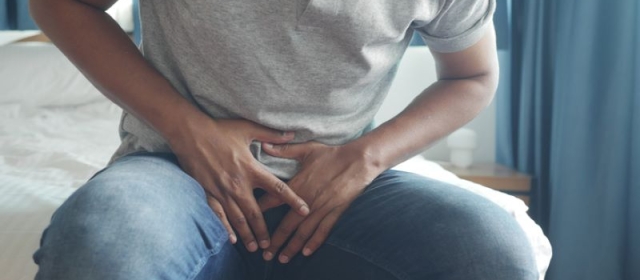
All News
Upcoming Events

Postmenopausal women often face sexual dysfunction, which can have a big impact on their quality of life. There are several different treatment options available (depending on the type and cause of sexual dysfunction) including hormonal and non-hormonal therapy, personal lubricants, sex therapy, and pelvic floor physical therapy.

Over the last few weeks, ISSM members have received emails soliciting submissions to possible "predatory journals." This journal's title is almost identical to our own flagship journal, The Journal of Sexual Medicine (JSM).
The aim of fake journals is not to publish high-quality research, but rather to place as many articles as possible online with as little effort as possible and in this way make maximum profit. Predatory publishing is a lucrative business, as evidenced by the rapidly increasing number of dubious publishers and magazines in recent years as well as the increasing number of other dubious offers such as fake conferences.
Despite the similarity of the journal title, we wish to stress that these emails are NOT referring to the official ISSM publications.
In this podcast hosted by Shelly Varod with special guest Jim Pfaus a Professor of Neuroscience, we explore the intricate pathways of the brain and the compelling psychological aspects that underpin this extraordinary phenomenon. Delving into the realm of neuroscience, we uncover the intricate mechanisms that define an orgasm, examining its role not only in reproduction but also as a powerful reward system within the human brain.
Discover the secrets hidden within the enigmatic waves of pleasure, as we discuss the profound impact orgasms have on our minds, bodies, and relationships. We unravel the complexities of this universal sensation, shedding light on the science that makes it such a revered and sought-after experience.
Join us as we navigate the uncharted territories of pleasure, exploring the science, psychology, and profound significance of orgasms in the human experience. This initiative is brought to you by our dedicated podcast team. Explore our previous episodes to discover more.

Genital sexual arousal, which includes lubrication and good vaginal blood flow in women, is crucial for healthy sexual functioning. This genital sexual response is regulated by hormones like estrogens and androgens, which can be affected by certain medications. In particular, oral birth control pills, also called oral contraceptive pills (OCPs), are widely used and have a notable effect on the body’s hormone levels. Despite their prevalent use, their influence on sexual function remains unclear.
What could cause erectile dysfunction in young, healthy men? In the latest edition of #AskISSM, experts in the field of sexual health attempt to answer this question.

The luteal phase is the phase of the menstrual cycle that occurs after ovulation (the phase in which one of the ovaries releases a mature egg) and before the start of menstruation (the shedding of blood and tissue from the uterus each month). The luteal phase typically lasts for about 12-14 days, but the exact duration can vary from person to person.

Peyronie’s disease (PD) is a sexual dysfunction in which scar tissue or plaques develop under the skin of the penis, causing it to bend or become misshapen during erections. Treatment options vary depending on the severity of symptoms. Surgery is often recommended for severe cases, but it may not fully restore the penis to its pre-disease state.

Introduction
Urinary incontinence is a common problem that affects many people’s lives. Stress urinary incontinence (SUI) is a prevalent type, especially among women. It can cause physical discomfort and impact one’s mental health and overall quality of life. SUI can also affect a person’s sexual function in about 50% of cases.

A vacuum erection device is a tool that men with erectile dysfunction (ED) can use to get an erection. It is an external cylindrical pump with a constriction band on the end that is placed on the penis and activated either by being pumped by hand or powered by batteries.
Join us for a compelling episode that delves into a topic often left unspoken: pain during sexual activity in women.
In this enlightening discussion, we have the privilege of hosting a distinguished guest, Johannes Bitzer, the former Chairman and Professor Emeritus of the Department of Obstetrics and Gynecology at the University Hospitals of the University of Basel. With a career spanning decades, Johannes brings a wealth of knowledge and expertise to the forefront of this conversation.
Our conversation is fascinating as we explore the intersection of biology and psychology, where Johannes has spent years crossing and overlapping these two fields. This unique perspective sheds light on the intricate ways in which our bodies and minds intersect when it comes to sexual health.
From addressing the physiological aspects of female sexual pain to delving into the psychological factors that can contribute to it, we leave no stone unturned.
Tune in as we navigate this essential but often overlooked aspect of women's sexual health. Join us in breaking the silence surrounding female sexual pain and taking steps towards a healthier, happier, and more fulfilling intimate life.
The ISSM Podcast is an initiative of the ISSM Education Committee led by Coby Reisman and including team members Shelly Varod, Sameena Rahman, and Karl Pang.

Gender dysphoria is when a person’s gender identity does not match their assigned sex at birth. Some people with gender dysphoria choose to transition to align with their gender identity, which may sometimes include surgery like vaginoplasty (the surgical creation of a neovagina). There are different techniques for this surgery, but it is still not clear how they affect sexual satisfaction.


